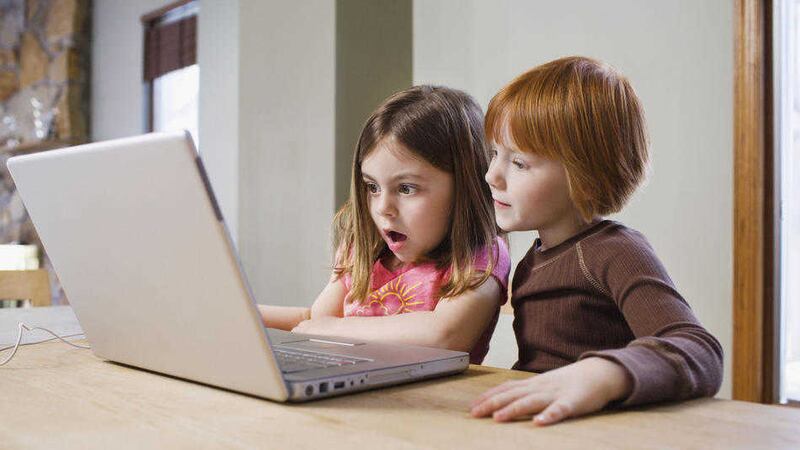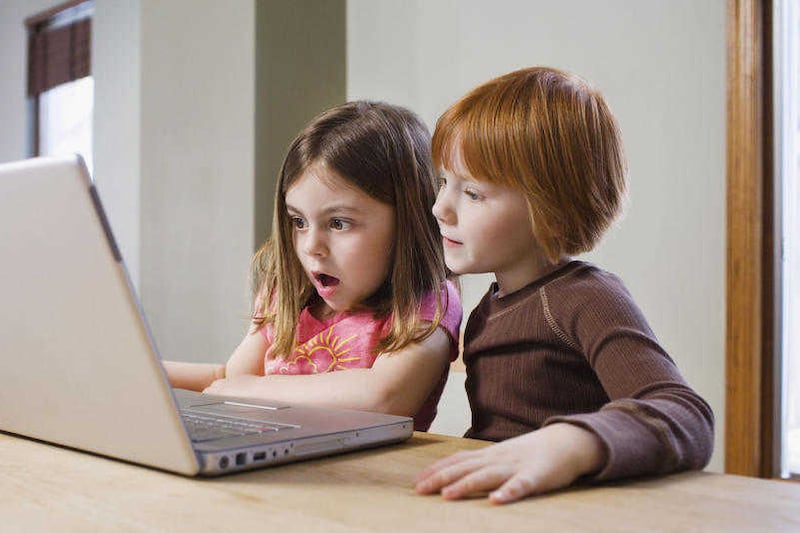MANY parents bemoan their children's obsession with digital technology, and yearn for the 'good old days' when kids used to play outside and sometimes get bored.
But have you ever stopped to think that the positives of this new digital world might actually outweigh the negatives, for both parents and children?
In their new book Parents And Digital Technology, parenting expert Suzie Hayman and psychologist John Coleman point out that as well as many perceived, and some real, threats from children becoming immersed in the digital world, there are also numerous benefits that can enhance young people's lives.
"Part of the solution is to grasp the positives and help your children to benefit from those, while also saying, 'These are the rules'," says Hayman.
"We hear about the nasty side of the internet, the trolling and the bullying, but what you don't hear about is the number of times an unhappy young person goes on a social media site and gets sympathy and suggestions on how to make it better."
POSITIVES
Digital benefits include:
:: Keeping in touch.
:: Gaming: While the drawbacks may be that young people get obsessed and neglect other aspects of their life, the upside is that games, unlike watching television, are active and demand a response – thinking, reacting, and finding solutions. Games require skills and expertise that can have dramatically positive results in young people's lives, says Hayman.
"So many of us are turning our back on these games and saying they're just a waste of time. But our kids are actually learning very good things from them and we should be harnessing that."
:: Education: Digital devices can be used at school to release creativity, sustain interest and provide intellectual challenge.
:: Not being able to be bored: according to the Office for National Statistics, half the number of girls under 18 become pregnant now than did 25 years ago. Over the same period, consumption of illegal drugs has also halved, teenagers drink a third less alcohol, and most don't smoke.
"Why did young people drink, smoke, have sex?" asks Hayman. "Mostly, because they were bored and it was either something to do or part of something to do – hanging out with equally bored friends. Instead, they now reach for a screen."
She does, however, point out that never getting bored can also be destructive, potentially leading to young people growing up never having to use their imaginations or work at finding something to do.
PERCEIVED VS ACTUAL THREATS
:: Access to pornography and violence.
:: Selfies and sexting: potentially fuelling anxiety and confusion.
:: Cyberbullying: a survey by the charity Family Lives found 43 per cent of 11 to 16-year-olds had been bullied on social networks.
:: Family life: parents often worry about the way social media and the internet have taken over family life.
:: Health issues: these include long periods spent on devices, little exercise and increased consumption of junk food. Plus, a large study by Public Health England concluded that children who spent more than four hours a day in front of the television or a computer screen were more likely to develop anxiety or depression.
Hayman and Coleman suggest the main, real threats are actually:
:: Addiction
:: Cyberbullying
"I do think that when you look at the anxieties – and there are plenty, including things that are absolutely awful, like cyberbullying – it shows that parents need to know so much more and have conversations about digital technology," says Hayman.
"Just putting blocks and filters on gadgets won't work because kids will get round them, and such blocks don't give you the opportunity to discuss what's wrong with the digital world."
TERRIFIC TRIO
Hayman stresses that to maximise the digital world's potential, parents basically need three things: knowledge, understanding and skills.
The knowledge and skills are to be aware of what children are encountering on the internet and help them manage it safely and positively; the understanding is of the positives and the negatives of digital technology and negotiating rules and sanctions.
Rules can include limiting screen time. The authors say the consensus is to aim for:
:: 0-2 years of age; never
:: 3-5 years; no more than one hour a day
:: 6-18 years; no more than two hours a day
However, Hayman points out that as older children may also need to do homework on the internet, a two-hour restriction may sometimes be unworkable.
RULES
Hayman and Coleman suggest general household digital rules should be:
:: Everyone turns off all technology when they get home for a period, and at mealtimes.
:: Meals to be eaten at a table, not from laps in front of screens.
:: Don't let screens be the only entertainment or source of knowledge at home – read books and enjoy other activities.
:: Allow 'check-in times' to social media in the evening for everyone, at an agreed time, for a specific time. Have something definite to move on to afterwards.
:: Time online comes out of an agreed limit for the day.
"Rules need to be what suits you and your family. And they need to apply to everybody in the house," stresses Hayman.
:: Parents and Digital Technology is out now, published by Routledge.





